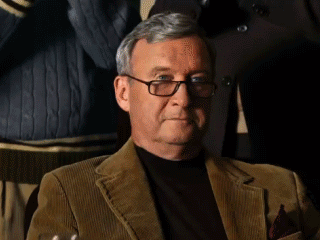- Joined
- Jan 28, 2011
- Messages
- 99,621















Decline of MMORPGs, decline of social games, decline of EA. Truly this is a glorious year. 
http://www.nytimes.com/2012/07/26/technology/for-zynga-a-reversal-of-fortune.html

http://www.nytimes.com/2012/07/26/technology/for-zynga-a-reversal-of-fortune.html

SAN FRANCISCO — The social games developer Zynga is withering faster than neglected corn on its signature hit FarmVille.
Weak second-quarter financial results and worse expectations for the rest of the year sent Zynga’s already faltering stock down in late trading Wednesday by more than a third, to $3.18 a share.
The unexpected news was seen as boding ill for Facebook, which is closely tied to Zynga and will issue its first earnings report as a public company on Thursday. Facebook shares fell 8 percent in late trading.
For Zynga, a Silicon Valley darling whose public offering last December seemed to herald a wave of tech success, just about everything went wrong at once.
A brief list: Facebook made changes to its gaming platform that hampered Zynga regulars. A critical new game, the Ville, was delayed. Another new game, Mafia Wars II, just was not very good, executives conceded. The heavily hyped Draw Something, acquired in March, proved more fad than enduring classic. Some old standbys also lost some appeal.
“Facebook made a number of changes in the quarter,” John Schappert, chief operating officer, said in a conference call with analysts. “These changes favored new games. Our users did not remain as engaged and did not come back as often.”
Revenue for the second quarter was $332 million, below analysts’ expectations of $343 million. And the company lost $22.8 million, or 3 cents a share in the quarter, although excluding one-time items it had a profit of 1 cent a share — still below expectations.
But the real problem was that Zynga slashed the forecast for its bookings — revenue less fees it pays Facebook — to as low as $1.15 billion for 2012, from $1.47 billion.
It was a somewhat contentious conference call. One analyst, Richard Greenfield of BTIG, brought up to Mark Pincus, Zynga’s chief executive, that he had sold stock at $12 a share shortly after the public offering. Mr. Pincus did not directly respond beyond saying “we believe in the opportunity for social gaming and play to be a mass-market activity, as it is already becoming.”
After the call, Mr. Greenfield downgraded Zynga’s stock to neutral from buy in a report titled, “We are sorry and embarrassed by our mistake.”
In an interview, Mr. Greenfield said: “Right now, everything is going wrong for Zynga. In a rapidly changing Internet landscape that is moving to mobile, it’s very hard to have confidence these issues are temporary.”
Most Zynga games are free. The company makes money from a small core of dedicated users who buy virtual goods like tractors in FarmVille. Over the last year, the average daily amount of money Zynga took in from these core users dropped 10 percent even as the overall number of users expanded.
“Zynga’s challenge has been to drive up efforts to keep their attention and broaden their user base — which they did — but now they need to get them to pay,” said Michael Gartenberg of Gartner. “Increasing the number of players doesn’t mean you’re making money off them.”
Mr. Gartenberg added a thought that would bring chills to any Zynga executive: “At the end of the day, though, virtual goods might not be a viable business strategy. People eventually stop spending money in virtual goods and want to spend that money on real goods.”
Zynga and Facebook are tied at the hip. Until recently, Zynga games could be played only on the Facebook platform, and for every dollar that users spent on buying virtual goods, Facebook pocketed 30 cents, its principal moneymaking channel other than advertising.
That partnership has continued. Zynga has seven of the top 10 games on Facebook. In a closely watched experiment, Facebook has started offering advertisements to its users on Zynga.com. It is the first time Facebook has spread ads outside its walls.
Zynga’s efforts to develop its own gaming platform independent of Facebook are still in the early stages. A Facebook spokesman declined to comment.
Last edited:








![Glory to Codexia! [2012] Codex 2012](/forums/smiles/campaign_tags/campaign_slushfund2012.png)












![Have Many Potato [2013] Codex 2013](/forums/smiles/campaign_tags/campaign_potato2013.png)







